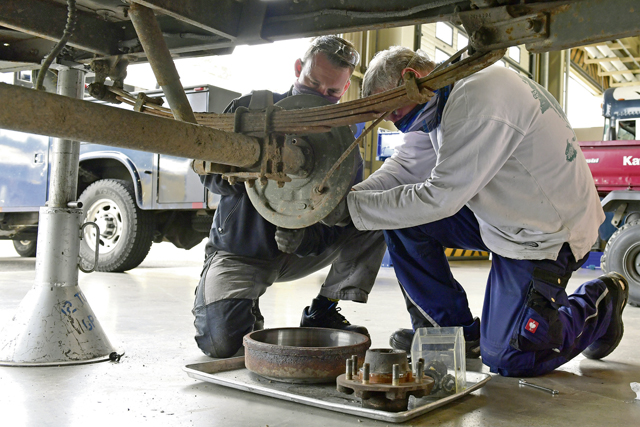
Keeping Team Ramstein’s government vehicles operational is a massive undertaking. When a unit has even one vehicle out of commission, it can put a strain on operations.
The 86th Vehicle Readiness Squadron works hard to respond to maintenance needs to get vehicles back on the road as quickly as possible.
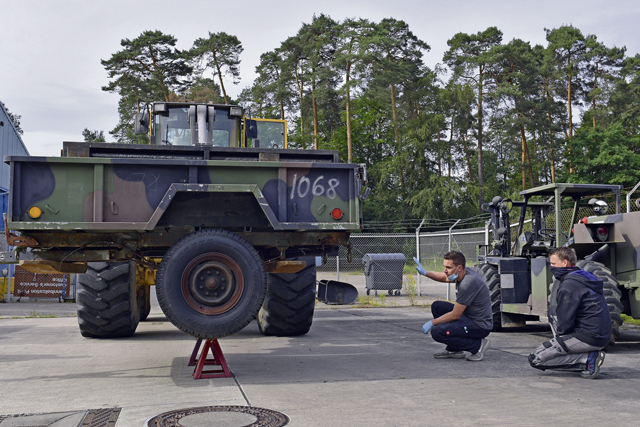
Sometimes, however, the automotive parts needed for a repair are not as readily available through standard Air Force sourcing routes.
“It’s (materiel control’s) job to source the parts, whether it’s through a stateside vendor or local vendor,” said Master Sgt. James C. Miller, 86th VRS vehicle management section chief. “Once we run into a bottleneck or an issue where there are delays in getting the parts, we try to get creative and find different avenues.”
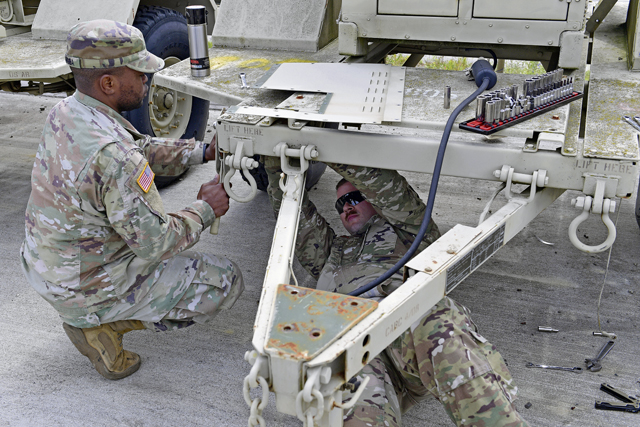
Through innovation and resourcefulness, the 86th VRS has saved time and money by establishing a new partnership with local Army supply to expedite military tactical (M-series) vehicle repairs at Ramstein Air Base.
Many of the parts needed for M-series vehicle repairs can be sourced from retired Army vehicles at the disposition lot, called Cannibalization (Cann) Point, on Rhine Ordnance Barracks.
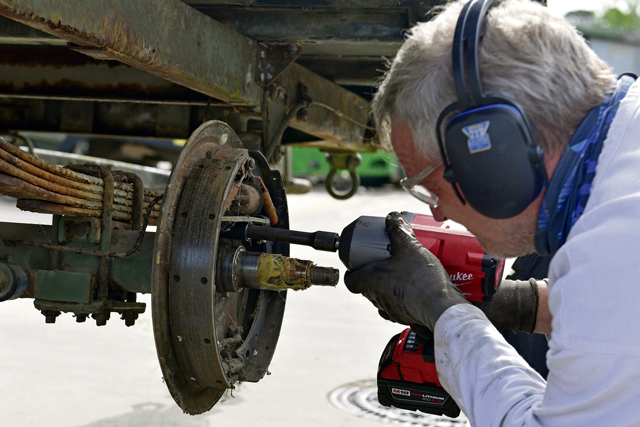
“Depending on how it was purchased or what condition it’s in, a lot of the time it isn’t appropriate to just throw the item away,” Miller said. “There’s a proper disposition process for it. One thing that we do with vehicles is what’s called a limited technical inspection (LTI).”
The LTI identifies everything wrong with a given vehicle before it goes to disposition, letting the next office or entity that handles it know what is and is not salvageable. The vehicle may no longer be operational as a whole, but parts on the vehicle may still be in good condition and fully functional.
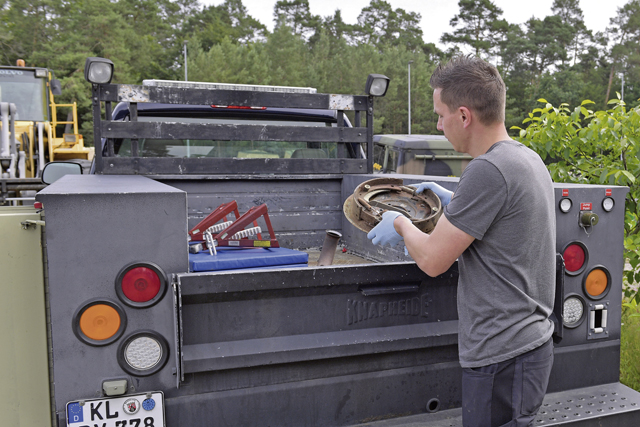
In one instance the 86th VRS needed ballistic glass for an armored Humvee door, but due to the model and age of the vehicle, they would have had to buy 40 of them from a vendor to fulfill their need for one.
“That’s a ridiculous cost,” Miller said. “We have no storage for them and we have no need for them. Working through a partnership, we were able to source (one).”
The process of acquiring parts from the disposition lot also includes quality checks before, during and after the automotive component is removed from the vehicle.
“Six months ago when (a vehicle) arrived there, it might have been perfectly fine,” said Tech. Sgt. Anthony Tepen, 86th VRS materiel control supervisor. “However, because the vehicle might sit for so long — three to six months — our mechanics will definitely be out there looking at everything and whether a part is usable or not.”
The benefits of timely local Army supply options can be seen by 86th VRS customers who have fleets of M-series vehicles, such as the 435th Security Forces Squadron, 1st Combat Communications Squadron and 86th Civil Engineer Squadron Explosive Ordnance Disposal.
The M-series vehicles can also be important for deployments.
“A good chunk of our M-series are assigned to unit type codes, so they’re part of deployment packages,” said Tech. Sgt. Milen Tapper, 86th VRS fleet management and analysis supervisor. “They need to be ready at all times.”
When presented with a supply challenge that could have affected operations, the 86th VRS provided a partnership solution that not only improved efficiency, but ensured readiness and mission success.


